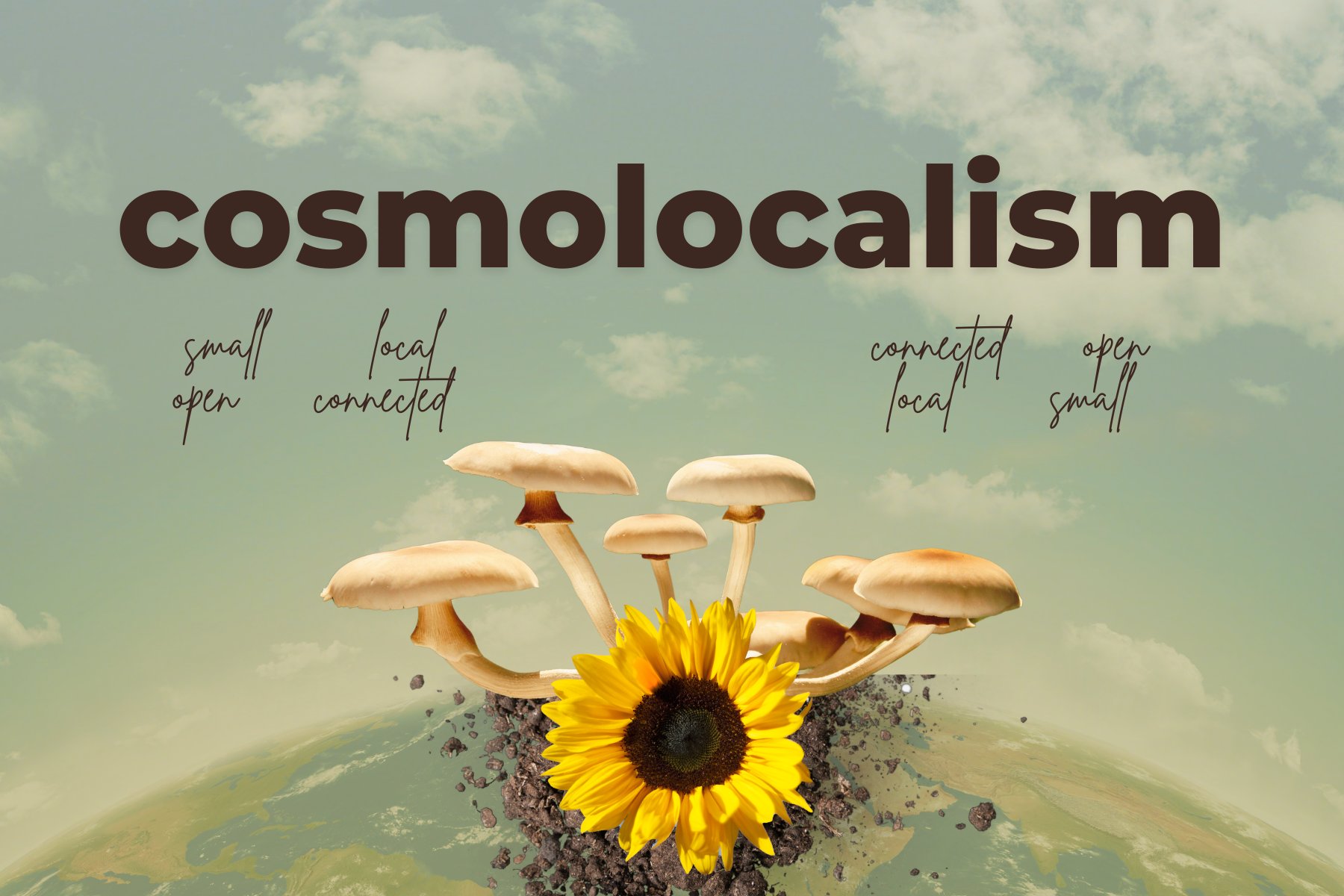You might know cosmolocalism by another, less cryptic name: Design Global – Manufacture Local. In its earliest and most practical forms, this concept combines globally open source design with local or regional production to get the best of both worlds. When ideas are open, human creativity is shareable, making happens locally, and the material goods we rely on can be made, adapted and maintained within our particular contexts, the relationships between producers and consumers get reshuffled in really interesting ways.
These core ideas from the design-manufacture space have been extended into the social innovation and community development discourse, where their more lyrical name, cosmolocalism, is often used. Cosmolocalism envisions radically different kinds of linkages between local and global communities than those that have formed – and strangled peoples and places – under global neoliberal capitalism. The remix spun by cosmolocalism encourages us to make some sweet, sliding moves between locality and universality. Its rhythm drives a deep respect for the local as our most important social and ecological sphere; its melody sings of the potential for global networking beyond the logics and narrow incentives of capitalism. Its chorus proclaims its characteristics: small, local, open, and connected.
In cosmolocalism’s conception, local is primal, sensory, and as real as it gets. We inhabit particular places on the earth – and only one at a time. We are part of our place(s), like it or not. Our locales shape lived experience and personal memory. We are there there. Present, but influenced by the past and responsible for the future. At the same time, universality transcends our lived experience and whispers to us of our common being as humans. This is the basis of mutual recognition, mutual care. It moves us beyond our limited, local and personal spheres and substantiates our sense of a common good, a common future, and a common responsibility.
Imagine a global network of mutually supportive local communities making mindful and appropriate use of digital, information, and communication technologies to share and exchange the non-material resources that can and should flow freely around the globe: knowledge, ideas, practices, skills, innovations, and culture. Material resources – tangible things – are sometimes exchanged among and between them, but only to the extent socially and ecologically sustainable and not primarily for the purpose of making a profit (though potentially as a way to support decent livelihoods and mutual thriving of both trading partners). This arrangement offers an alluring alternative to the kind of totalizing globalization that drowned out local cultures and subsumed place-based economies into a homogenized global system that extracts, exploits, and erodes the planet’s life supporting capacity. At the same time, intentional sliding between the local and the universal avoids parochialism, isolationism, fetishization, and selfishness that can come with localization and open it up to caricature and ridicule. Cosmolocalism invites us to be where we are, to give our places and communities the precious gift of our care and attention, while also reminding us that ours is not the only. It honors the common causes among peoples by creating knowledge commons that transcend place.
It’s most enthusiastic proponents believe that cosmolocalism could lead the way for a transition to post-capitalist, commons-centric economies and societies where value is shared widely and community autonomy flourishes. Cosmolocalism’s focus on building distributed systems and resilient infrastructures that enable us to reduce the distance between production and consumption seems particularly suited to creating the conditions for relational food systems without being anti-innovation.

